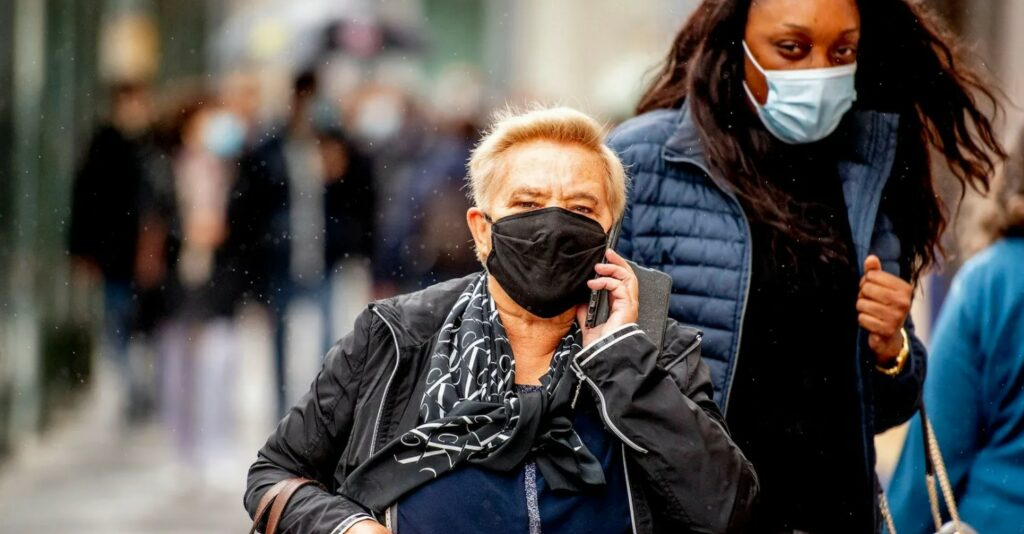Belgium's health services are recommending wearing a face mask in crowded places again this winter, when many viruses – such as flu and Covid-19 – are circulating, they announced in a press conference on Friday.
Like every winter, many viruses that can cause respiratory infections (flu, RSV and Covid-19) are circulating again. To keep the peak of viruses under control, the Public Health Ministry has drawn up a new 'Winter Plan' of recommendations.
"If there are many viruses circulating, it is wise to wear a face mask in crowded places, such as on public transport or at indoor events," said Dr Gerlant Van Berlaer of the Public Health Ministry. "Especially for vulnerable people, we strongly recommend extra protection. This can be done partly with a face mask. And of course also by getting vaccinated."
Additionally, the typical Covid-19 rules remain advised: regularly washing your hands, keeping 1.5m social distance from others and ventilating indoor spaces.
Those who are ill should stay at home, but wearing a face mask remains advised when returning to work once they feel better. "Especially in the first few days. Up to five days after the first symptoms, you can still infect people, even if you yourself are no longer sick," said Van Berlaer.
The recommendation around masks only applies to adults, as there is no scientific evidence that face mask use among children and teenagers has a big impact on the number of people getting sick. "Still, it is better to be safe and not visit grandparents with sick children."
Return of the colour codes
There are four colour codes, from green and yellow to orange and red, indicating the severity of the alert level. In code green, there is a low circulation of pathogens, while code red represents high risk and an expected overload of the healthcare system.
Each level is accompanied by specific recommendations. Unlike during the pandemic, these are not mandatory, but health experts have stressed the difference they can make to prevent the spread of respiratory viruses.
- Code green and yellow: those who are sick are asked to stay at home and those who are vulnerable should wear face masks. The population is asked to wash their hands regularly, sneeze into their elbows and ventilate indoor spaces.
- Code orange: in addition to the previous rules, everyone (including those without symptoms) is asked to wear face masks in crowded places.
- Code red: on top of the code orange recommendations, people are asked to keep a social distance and avoid gatherings in crowded places.
Currently, Belgium is still in code green, according to Sciensano's weekly report. While few people are reporting flu-like symptoms to their GP, the number of RSV infections has risen sharply in recent weeks. Still, there are far fewer infections than in the same period the previous two years.

